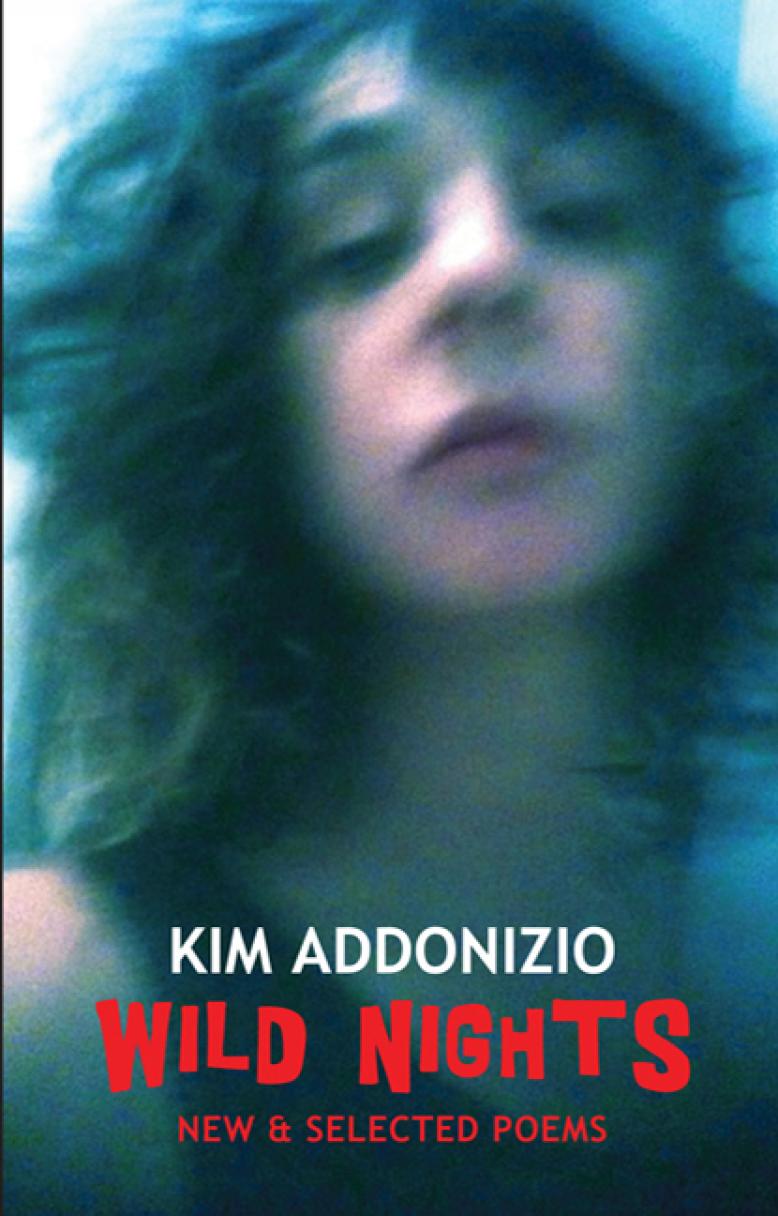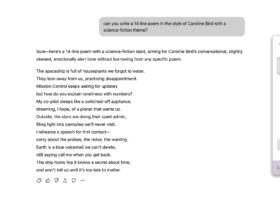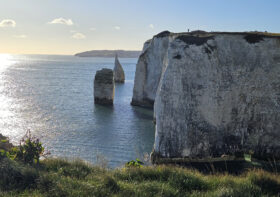Roundup – current reading, events, Poet Laureate etc
I’m not sure where the month has gone – somewhere out the door together with the gardening, the yoga and the Spring days out, all of which have been on hold these last few weeks as I grapple with an inexplicable (literal) pain the bum, recently moved into my back. The joys of ageing! I promise I will never again be unsympathetic when hearing of anyone’s backache!
Anyway, I’m now at my standing desk, so please pass your most positive vibes to my ancient body as I compose a quick round-up of a few things I HAVE been doing.

Currently reading
Kim Addonizio‘s Wild Nights (New & Selected) (Bloodaxe) which I picked up in Cork where I heard her read. I really enjoy her style: deadpan, ironic, dreamlike, much use of the colloquial, long lines of thought that take off at tangents but take you with them, wonderful variety of form and just enough opacity to intrigue the reader rather than exclude her. There’s something about the worlds she creates and inhabits that feels both foreign and familiar, and I find myself revelling in it.
Last month Mike Bartholomew-Biggs came down to Eastbourne’s Poetry Cafe event and read from his book Poems in the Case (Shoestring), and I’m now about half-way through. It’s a kind of whodunnit, combing traditional storytelling and poetry. I’m wracking my brain to think of the term – metatextual? metafication? – for the ‘story within a story’ form. For example, even some of the blurbs on the book cover refer not to this book, but to the work of the fictional characters within.
It’s a lot of fun and I love this kind of literary mashup. There are plenty of in-jokes and familiar tropes for readers who are themselves poets – the poetry residential, the amateur poet characters, the grand egos, simmering jealousies, publishing rivalries, concerns about authenticity and plagiarism. We read the poems written by the various characters, looking within them for clues. It’s a masterpiece of ventriloquy by Mike, who manages to create poems that could credibly have been written by a variety of different people. I haven’t got to the denouement yet so I’ve no spoilers to offer!
Events
Hastings Stanza got together with the Hastings Philharmonic Chamber Choir to present an evening of poetry and music. Orchestrated (see what I did there) by our own Antony Mair, the event was hugely enjoyable. None of us were quite sure how it would pan out, mainly because it had been instigated by the choir, and it was only a couple of days before when we found out what they would be singing. So we planned our contributions as ‘stand alone’ sets, each of us taking ‘change’ as our theme but interpreting it in our own ways. As it happened, the spoken sets worked really well interspersed with the music, which itself was wide ranging and challenging – from Hildegard of Bingen to Berio. We held it at The Beacon in Hastings, a lovely, intimate venue which is much more like someone’s living room than a concert hall. Afterwards we all agreed it was a great model – I’ve often pondered how to combine poetry with classical music and never come up with anything I was happy with. So this was a revelation.
I also made it to the Brighton launch of Finished Creatures which was one big turqoise social with excellent readings and a lotta lurve for editor Jan Heritage. Keep any eye out for further editions and reading windows.
On the writing front, I haven’t much felt like extended sitting, let alone getting my head around creative writing. But I have sent out a few more sweaty envelopes of ready-I-think-but-not-yet-sent poems (or something like that). I’ve also entered three (gulp) poetry pamphlet comps. I think this is all part of my 2019 resolution to send out more.
I suppose the big poetry news this month is our new Poet Laureate. When the Poetry Society polled their members back in the autumn, I’m pretty sure I made a case for Simon Armitage, who strikes me as someone who is both a literary big gun and also accessible, down to earth and committed to community engagement, the perfect to successor to Carol Ann in other words. But I suspected I was a bit behind the times. There was a lot of talk of how it ought to be a poet of colour, or another woman, or a woman poet of colour. I’ve always found the idea of positive discrimination somewhat problematic, and I know poets of colour who do so too – so much so that I even wonder if a few of those poets whose names were in the running (according to the media) may have discounted themselves (publicly or privately) because they didn’t want to be appointed on the ‘diversity ticket’. And before anyone says ‘but XYZ poet is at least as fine a poet as Simon Armitage’ that’s not really the point – the point is the waters had already been muddied by the suggestion that XYZ ‘ought’ to get the job because there ought to be a Poet Laureate who’s not white. Surely we all welcome any Poet Laureate who is enthusiastic about the role, uses it to connect more people to poetry and bring more poetry to more people, champions and supports poets of all backgrounds and all ages. Someone who carries on the amazing work done by Carol Ann Duffy – and incidentally I looked up the Guardian piece from 2009 when she became the PL and it’s a really interesting read – apparently she’d been in the running a decade before, but declined. I wonder if in ten years’ time there’ll be less fuss made about how we need a poet of colour as PL. It will just happen.



I love Armitage’s poems, his hard-working poet persona and his resistance to the problems left to us by the Romantics, who favoured a kind of dippiness that people unfortunately tend to count as ‘poetic’. I’d have loved to get a laureate from a different social group though. That’s if you like the idea of a laureate at all. In Ireland there is no laureate or monarchy, but the Ireland Chair of Poetry which is a cross-border post supported by the arts councils in Dublin and Belfast for three years at a time. This does mean you get a faster turnover of poets. The first appointee of any excluded group always has to deal with this bollocks about positive discrimination – as if there has previously been nothing discriminatory, nothing to see here, about not considering any writer who wasn’t similar enough to the last lot you’d heard of or studied at school in the mists of time.
Hi Grainne, thanks for that – yes the role does sound a bit anachronistic and maybe needs a rebrand. I like ‘Chair of Poetry’. I think what you say about dealing with the bollocks of positive discrimination is what I mean about in ten years time hopefully we’ll have worked through the arguments and it will be less of a thing. But ‘different social group’ is another thing altogether I suspect.
By different social group I meant someone not white, not male, not LGBTQ+++
, with no foreign heritage anyone can spot, and born into a safe, respectable place in the class system. It’s terrible to be spoken of as being chosen just for one of these characteristics (and no matter how totally wonderful a poet someone is, there will always be those who prefer to make this claim about them) but in a loaded game, I think it will be a while before we can do without consciously trying to redress the balance .
I’m with you on the diversity issue, Robin. Denise Levertov spoke wisely when she said, “In so far as poetry has a social function, it is to awaken sleepers by other means than shock.” The overt lobbying for a laureate who would be seen as the champion of a cause rather than an artist of excellence is misguided. Simon neatly deflected the mischievous question from Will Gompertz with his tale of growing up without privilege in a terraced house on the side of a hill in West Yorkshire. Grainne seems in two minds on this one, deploring the way someone might be undervalued because perceived to be a political appointee, then appearing to endorse those “consciously trying to redress the balance”. Excellence will out. It’s time to put the loud-hailers away.